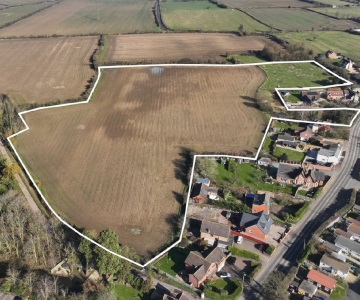Boris Johnson’s saviour or political epitaph?
After countless stories about parties, champagne bottles and tinsel, the government were keen to move the headlines away from lockdown breaking gatherings and onto other matters. Cue the Levelling up White Paper released to much fanfare (although the lack of ABBA songs at the launch was obviously disappointing for some).
The concept of ‘Levelling-up’ was emphasised by Boris Johnson in a speech delivered in July 2021 to address the entrenched problems and deepened inequalities that have been exacerbated by the Covid pandemic:
“We need now to work doubly hard to overturn those inequalities so that as far as possible everyone everywhere feels the benefits of the recovery and that we build back better across the UK”, he said at the time.
The ‘Levelling Up’ White Paper (all 300 pages of it) launched on the 2nd February 2022 by Michael Gove, looks forward over two Parliamentary terms to 2030 in setting out its 12 integrated ‘missions’. The main focus of the strategy will be to:
- Direct the Government’s educational efforts on the most disadvantaged parts of the UK;
- Extend research and development to areas outside the South East;
- Bring 5G broadband to most areas of the country;
- Give 100,000’s more people high quality training and skills;
- Narrow the disparities in healthy life expectancy;
- Halve the number of poor-quality rented homes;
- Support 20 town and city centres, beginning with Sheffield and Wolverhampton.
The Levelling-Up Fund
Although considerable long-term funding was announced 9 months ago within the UK Community Renewal Fund (£220 million), the ‘Levelling-Up fund’ (£4.8bn) and the Community Ownership Fund (£10 million), the current announcement has not actually attracted any new money from the Treasury.
So, what is in this considerable document that affects us as Town Planners, landowners and Land Promoters? Well in short, not a lot in the short term. What it does do, is a good job of reminding us on page 227 that the current Local Plan system in England is not fit for purpose, but not to worry, there is an easy fix is just around the corner:
“Only 39% of local authorities have adopted a plan within the last five years, which limits effective community engagement about development. Local Plans will be made simpler and shorter, and improved data that underpins plans will ensure that they are transparent, understandable and take into account the environment that will be developed. All of this will result in a system that is easier to engage with and works more efficiently, with communities having more of a say and more councils agreeing local plans.”
Aha! I think I’ve heard this talk of planning reform and simpler, shorter local plans before ..… and not that long ago. Cast our minds back 18 months to the launch of the ‘Planning for the Future’ consultation, where you guessed it, the Government promised to streamline the planning system through the medium of shorter, quicker Local Plans. Except they didn’t, after a group of Conservative backbenchers got together via a WhatsApp group and forced the Prime Minister into yet another volte-face. The 44,000 consultees who responded to that document haven’t even had a response from the Government to their submissions; I doubt whether such a response will materialise in full.

So how does all this affect the good people of the South of England?
The major policy announcement contained in the Levelling Up White Paper that will certainly have an effect in the short term is the scrapping of the ‘80/20 rule’, which directed 80% of government funding for housing supply to ‘maximum affordability areas’.
The 80/20 formula used a ratio of average house prices to average workplace-based household income figures. This meant money was disproportionately channelled to the South East of England, as it was supposed to target the least affordable areas of the country under the assumption that their need for additional housing was also the most acute. Scraping this rule means the Treasury can now direct such funding to areas of the country where house prices are cheaper, thus seeking to improve infrastructure in areas that may not have benefited from such investment in the past.
It is difficult to criticise the overall objective to redress country-wide inequalities in incomes and opportunities to help generate greater efficiency within the national economy and creating more fairness in society. Indeed, it is difficult to argue with the statement from Michael Gove that
“System change is not about a string of shiny, but ultimately short-lived, new policy initiatives. It is about root and branch reform of Government and governance of the UK.”
However, for the less prosperous areas to catch-up economically to please the ‘red wall’ constituencies, the more affluent ‘blue wall’ constituencies may well retrench in comparison, which yet again will prove very unpopular with the home-counties Conservative MP’s.
I can see another WhatsApp group coming….
Could your land have development potential?
David Morris Planning & Operations Director
Thinking about land promotion for your land site?
We’re actively seeking strategic land sites to add to our land promotion portfolio.
With a proven track record and strong success rate, landowners across the country are encouraged to contact us to find out how we could help you maximise the value of your land.




